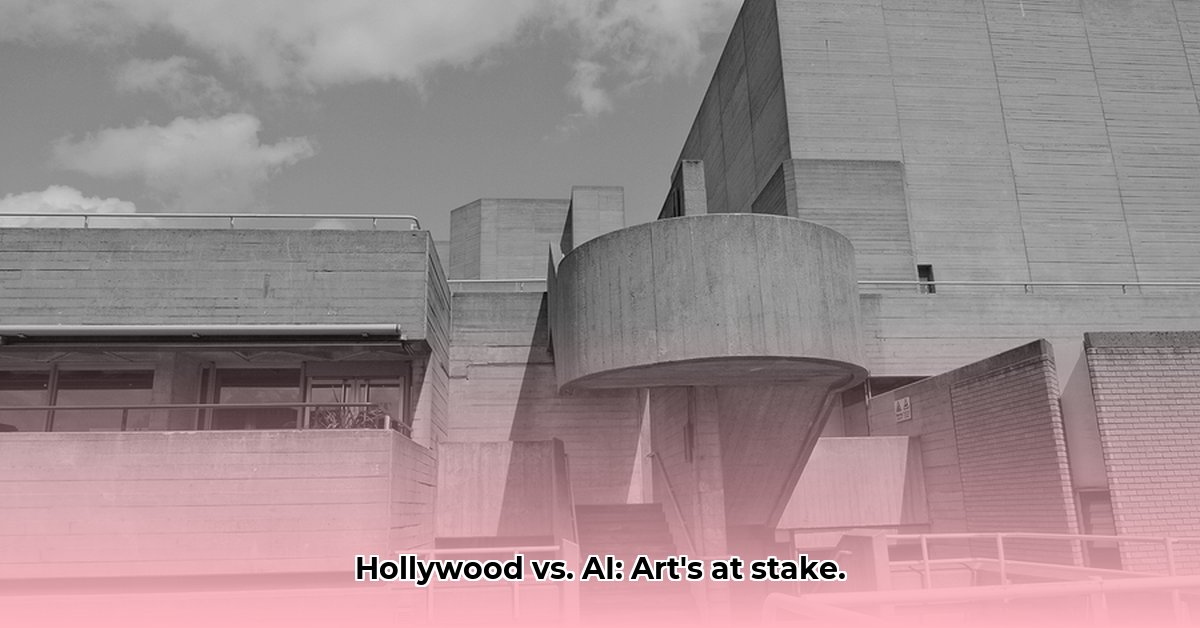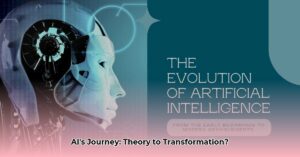The Heart of the Matter: AI’s Role in The Brutalist
Brady Corbet’s film The Brutalist has ignited a heated debate, not for its plot or cinematography, but for its behind-the-scenes use of artificial intelligence. Specifically, the film employed Respeecher, an AI voice-cloning software, to refine the Hungarian accents of lead actors Adrien Brody and Felicity Jones. Learn more about the evolution of AI. AI evolution has impacted many fields. While seemingly a minor technical detail, this decision has sparked controversy, particularly amidst the backdrop of the 2023 WGA and SAG-AFTRA strikes. The core question revolves around the authenticity of performance in the age of AI: does digitally altering an actor’s voice diminish their artistic contribution and signal a troubling trend for the future of acting?
A Deeper Dive into the Controversy
Corbet maintains that the AI’s role was minimal, used only to perfect certain pronunciations after months of dialect coaching. He likens it to a “digital scalpel,” a tool for precision enhancement, not wholesale replacement. However, conflicting reports from editor Dávid Jancsó suggest a potentially more extensive use of the technology, leaving some ambiguity around the extent of AI’s involvement. This lack of clarity fuels the controversy and raises questions about transparency in filmmaking practices.
Furthermore, the timing of The Brutalist‘s release, coinciding with the actors’ and writers’ strikes, amplified the debate. The strikes highlighted existing anxieties about job security in the face of advancing AI, and The Brutalist became a focal point for these concerns. The film, intentionally or not, became a symbol of the potential for AI to displace human creativity in the entertainment industry.
A Timeline of Events
- Pre-Production/Production of The Brutalist: (Exact dates unavailable, but likely within the past few years) Filming takes place, including Brody and Jones’s dialogue in Hungarian.
- Post-Production: Respeecher software is used to refine the actors’ Hungarian accents. The extent of this modification remains a point of contention.
- 2023 WGA and SAG-AFTRA Strikes: (May – Ongoing) Strikes commence, focusing on fair compensation and concerns about AI’s impact on creative jobs.
- Release of Information about AI Use in The Brutalist: (Exact date unavailable, but likely close to the film’s planned release) News breaks about the AI’s role in the film, sparking controversy.
- Public Debate and Backlash: Discussions erupt online and in media outlets about the ethical implications of AI in filmmaking, fueled by the ongoing strikes.
Ethical and Philosophical Implications: Redefining Authenticity
The Brutalist controversy compels a deeper examination of artistic authenticity in the digital age. If AI can seamlessly alter or even fabricate performances, what constitutes a “real” performance? Some argue that any technological manipulation, however subtle, compromises the actor’s artistic contribution. Others suggest that AI is merely a tool, like makeup or lighting, used to enhance a performance without undermining its fundamental authenticity. This debate touches upon broader philosophical questions about the nature of art, creativity, and the evolving relationship between humans and technology.
Multiple Perspectives
- Brady Corbet (Director): Defends the use of Respeecher as a tool for nuanced refinement, not replacement. (Seek out direct quotes if possible.)
- Dávid Jancsó (Editor): Statements about the AI’s role appear to contradict Corbet’s, suggesting a potentially broader application. (Seek out direct quotes and clarification.)
- Actors (Adrien Brody, Felicity Jones, and others): Their perspectives on having their voices digitally altered are crucial to the discussion. (Seek out interviews or statements.)
- Respeecher Representatives: Their explanation of the technology’s capabilities and intended uses could provide valuable context. (Seek out interviews or company statements.)
- AI Ethicists: Expert opinions on the ethical implications of AI in art would provide a broader perspective. (Seek out quotes from relevant experts.)
- Film Critics: Critical analysis of the film and the surrounding controversy can offer valuable insights. (Seek out reviews and articles.)
The Legal Landscape
While the ethical debate rages, the legal implications of AI voice cloning are also coming into focus. Issues of copyright, intellectual property, and the rights of actors to control their voice and likeness are likely to become increasingly relevant as AI technology advances. The Brutalist controversy may serve as a catalyst for legal challenges and the development of new regulations in this rapidly evolving field.
The Future of Filmmaking: A Collaborative or Contentious Future?
The Brutalist is not an isolated incident. Other films, like Emilia Pérez, have also utilized AI for vocal modifications, suggesting a growing trend in the industry. As AI becomes more sophisticated, its potential applications in filmmaking expand, raising both exciting possibilities and serious concerns.
Potential Impacts of AI in Filmmaking
- Democratization of Filmmaking: AI tools may empower independent filmmakers with access to resources previously only available to large studios.
- Enhanced Creative Possibilities: AI could open up new avenues for storytelling and visual effects, expanding the boundaries of cinematic expression.
- Increased Efficiency and Cost Savings: Automating certain tasks, such as post-production work, could streamline workflows and reduce production costs.
- Job Displacement: The potential for AI to replace human actors, writers, and other creatives raises serious concerns about job security.
- Ethical Challenges: The use of AI in filmmaking raises complex ethical questions about authenticity, ownership, and the potential for misuse.
FAQs: Addressing Common Questions
- What is Respeecher? Respeecher is an AI-powered voice cloning and modification software capable of altering and synthesizing human speech.
- How was Respeecher used in The Brutalist? It was used to refine the Hungarian accents of the lead actors, though the extent of modification is debated.
- Why is this controversial? The controversy stems from concerns about the authenticity of performance, job security for actors, and the ethical implications of manipulating actors’ voices using AI.
- What are the broader implications for the film industry? The controversy highlights the growing influence of AI in filmmaking and the need for ethical guidelines and regulations as the technology evolves.
A Call for Continued Discussion
The debate surrounding The Brutalist and the use of AI in filmmaking underscores the need for ongoing dialogue and critical analysis. As AI technology continues to evolve, it is crucial to address the ethical, legal, and artistic implications of its application. The future of filmmaking, and indeed the future of art itself, may depend on how we navigate this complex and rapidly changing landscape. Further research, open discussion, and thoughtful consideration are essential to ensuring a future where both human creativity and artificial intelligence can thrive.



